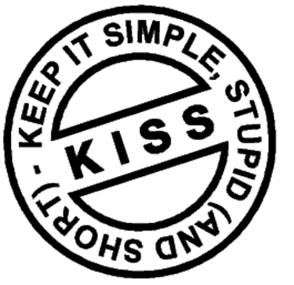I've been thinking about the right title for this blog about networking. I didn't want to use the words art or science because those are terms I've seen overused about networking. I wanted to find a term that described networking as a philosophy, a way of being. Then I thought about a posthumous collections of Bruce Lee's martial arts philosophy, the Tao of Jeet Kune Do. That was it - TAO! The Tao of Networking is more of a principle, a path.
My own Tao of Networking over the last 10 years (many of which have been spent on LinkedIn) are an accumulation of values and lessons learned from school leadership recruitment, making connections amongst my own networks, and meeting lots of people from all walks of life.
#1: Networking is giving. I read an Adam Grant article recently about this. Yes when we reach out to people, there's something we usually want in return (advice, connections, a job!). But I've learned to always offer what can I give in return. I end every networking conversation by asking if there's anything I can do for the person. I usually have something in mind based on the conversation, like making a connection for them, sharing a resource, or sharing a status update for the person's work.
#2: Networking is learning. I've had hundreds of networking conversations over the past two years. I usually write a series of questions I ask each person, based on what it is I want to learn. I've found that starting with a learning orientation, which makes me actively listen and more curious about the person, leads to new lessons! For example, I had a great conversation with a trusted mentor. Not only did she refer a number of great books on coaching, but gave me two easy pieces of advice as I coach clients: Listen more and empower them to create their own path (and not YOUR path!).
#3: Networking is consistency. It's all about the follow-up. If you say you'll do something for someone, do it. I take my networking notes and create a calendar appointment to follow up on an item. Additionally, I'll email out any next steps from a conversation to hold myself accountable. Most importantly, I reach out to three people every week to just say hi and ask what I can do for that person.
There are plenty of great articles about the process for networking, from a good email ask to how to frame a successful networking conversation. HOWEVER, without these values, networking then just become another item on our to-do list. Why not network because it aligns with who we are!













